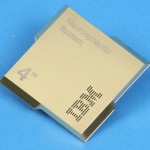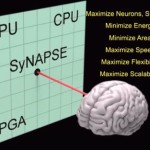Today Lawrence Livermore National Laboratory (LLNL) announced it has purchased a first-of-a-kind brain-inspired supercomputing platform for deep learning inference developed by IBM Research. Based on a breakthrough neurosynaptic computer chip called IBM TrueNorth, the scalable platform will process the equivalent of 16 million neurons and 4 billion synapses and consume the energy equivalent of a tablet computer – a mere 2.5 watts of power for the 16 TrueNorth chips. The brain-like, neural network design of the IBM Neuromorphic System is able to infer complex cognitive tasks such as pattern recognition and integrated sensory processing far more efficiently than conventional chips.
Video: Debugging HPC Applications at Massive Scales
In this video, LLNL scientists discuss the challenges of debugging programs at scale on the Sequoia supercomputer, which has 1.6 million processors. “Bugs in parallel HPC applications are difficult to debug because errors propagate among compute nodes, programmers must debug thousands of nodes or more, and bugs might manifest only at large scale.”
Video: DARPA’s SyNAPSE and the Cortical Processor
“I will describe a decade-long, multi-disciplinary, multi-institutional effort spanning neuroscience, supercomputing and nanotechnology to build and demonstrate a brain-inspired computer and describe the architecture, programming model and applications. I also will describe future efforts in collaboration with DOE to build, literally, a “brain-in-a-box”. The work was built on simulations conducted on Lawrence Livermore National Laboratory’s Dawn and Sequoia HPC systems in collaboration with Lawrence Berkeley National Laboratory.”






